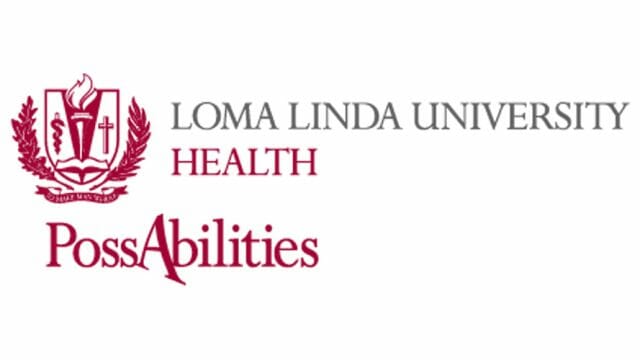S is for the social side of our health.

Communicating well with others is a vital part of the work and ministry of Julia Neuberger, a rabbi of South London Liberal Synagogue. In the January 1, 2010, issue of The Guardian, however, she wrote, “One change I’d like to see in the coming year is a move away from social networking sites . . . [and] using the web to make ‘friends’ and meet possible partners. There is nothing wrong with that in principle, provided they realize that the internet, however much it has transformed our lives for the better, is no substitute for meeting people, getting out there and making friends. . . . Those sites can only make initial connections; they cannot begin to develop the depth of real friendships, of real connectedness.”1
Social support is a vital factor in the health of individuals and society. Regardless of our diversity, we are all one by creation, and we should respect the dignity of others in all societies. Such unity encourages a willingness to provide service to one another. As psychologist Abraham Maslow observed, love is as essential to the growth of a human being as is food.2
Supporting one another helps us cope with stress. It’s important to realize that we can be our own worst enemies by refusing the support of others.
Supportive friends build self-esteem and self-efficacy, as well as strengthen our coping abilities and reduce our stress. Some friends, however, subtly undermine and depreciate us. Criticism and negative attitudes affect our health possibly through the effect on the immune or cardiovascular system.
Support of Adolescents
Adolescents in particular have high expectations of parents, and inadequate parental support increases the risk of adolescent depression. They become disappointed and confused when the anticipated help and positive reinforcement from parents are missing. The support of friends is also very important for adolescents.
Support in the School
School influence is probably second only to that of the home. Students in supportive settings enjoy school more, are more academically motivated, and are far less involved in disruptive and delinquent behaviors and drug use. If students sense “community”—opportunities to engage with others in school and other social groups and participate in community activities—they flourish.
Support in the Faith-based Community
Religious faith and practice appear to have a sizable and consistent relationship with improved health and longevity, including less hypertension and depression, a lower risk of suicide, less criminal activity, and less use of drugs and alcohol.3
Disease Recovery
In a study among 2,230 breast cancer survivors, women who scored highest on a social well-being quality-of-life scale had a 48-percent reduction in their risk of dying from cancer or having a cancer recurrence.4 Social well-being in the first year after cancer diagnosis is also an important prognostic factor for breast cancer recurrence or death.
A strong social support network can be critical in helping us through the stress of tough times, whether we’ve had a bad day at work or a year filled with loss or chronic illness.
Cardiac Arrhythmia Suppression Trial
Ellen G. White wrote that “doing good is a work that benefits both giver and receiver.”5 Science today agrees. Several studies, for example, show that when a person provides love to their pets they are healthier.
The American Journal of Cardiology published an interesting study in the 1990s known as the Cardiac Arrhythmia Suppression Trial (CAST).6 The doctors studied men and women who had sustained a heart attack and had irregular heartbeats. The results were surprising. More than six times as many non-dog owners died compared to dog owners, which seems to indicate that dog owners benefit from providing loving support to their pets.
Social Support at Work
In the workplace, colleagues can help to build a warm and caring climate by being genuinely interested in their coworkers’ well-being. Some of the most helpful support skills are very simple: listen to colleagues attentively, respect the other person’s privacy and dignity, choose words wisely, be gentle and kind, keep a positive attitude, and avoid criticism.
Social Support Networks
A social support network comprises friends, family, and peers. Rather than formal meetings with an official leader, a social support group can simply be friends eating lunch together, neighbors chatting together, and even church fellowships. These all are ways to develop and foster lasting relationships with the people close to us.
The Bottom Line
Those who enjoy high levels of social support stay healthier and live longer than those who don’t. Whether you are receiving the support or providing encouragement, you will reap a plethora of rewards.
Let us therefore live a life of praise to God by genuinely caring about the welfare of others and giving thanks for all things to Him who made us.
This article is a condensed version of a chapter taken from the GC Health Ministries book CELEBRATIONS(healthministries.com). [PC: Dimitri Houtteman/Unsplash]
_____________________
Read all of our CELEBRATIONS series:
- Choices: https://www.adventistworld.org/lets-celebrate-choices/
- Exercise: https://www.adventistworld.org/lets-celebrate-exercise/
- Liquids: https://www.adventistworld.org/lets-celebrate-liquids/
- Environment: https://www.adventistworld.org/lets-celebrate-the-environment/
- Belief: https://www.adventistworld.org/lets-celebrate-belief/
- Rest: https://www.adventistworld.org/rest/
- Air: https://www.adventistworld.org/lets-celebrate-air/
- Temperance: https://www.adventistworld.org/lets-celebrate-temperance/
- Integrity: https://www.adventistworld.org/lets-celebrate-integrity/
- Optimism: https://www.adventistworld.org/the-optimism-of-hope/
- Nutrition: https://www.adventistworld.org/nutrition/
- Social Support and Services: you’re reading it now!
1 Julia Neuberger, “Face to faith,” The Guardian, January 1, 2010; www.guardian.co.uk/commentisfree/belief/2010/jan/02/social-networking-real-world-online. Accessed April 5, 2010.
2 Abraham Maslow, “Maslow’s Hierarchy of Needs: The Motivation Theory and Hierarchy of Needs From Abraham Maslow,” March 3, 2011, www.maslowshierarchyofneeds.net/maslows-love-and-belonging-needs. Accessed April 12, 2012.
3 See W. J. Strawbridge et al., “Frequent Attendance at Religious Services and Mortality over 28 Years,” American Journal of Public Health 87, no. 6 (1997): pp. 957-961. See also H. G. Koenig et al., “Does Religious Attendance Prolong Survival? A Six Year Follow-Up Study of 3,968 Older Adults,” Journal of Gerontology 54A (1999): M370-377.
4 Rick Nauert, PsychCentral, “Social Support Helps Women Beat Breast Cancer,” January 21, 2011, http://psychcentral.com/news/2011/01/21/social-support-helps-women-beat-breast-cancer. Accessed April 13, 2012.
5 Ellen G. White, Testimonies for the Church, vol. 2 (Mountain View, Calif., Pacific Press Publishing Association, 1948), p. 534.
6 E. Friedmann, S. A. Thomas, “Pet ownership, social support, and one–year survival after acute myocardial infarction in the Cardiac Arrhythmia Suppression Trial (CAST),” American Journal of Cardiology, 1995, 76: pp. 1213-1217.








